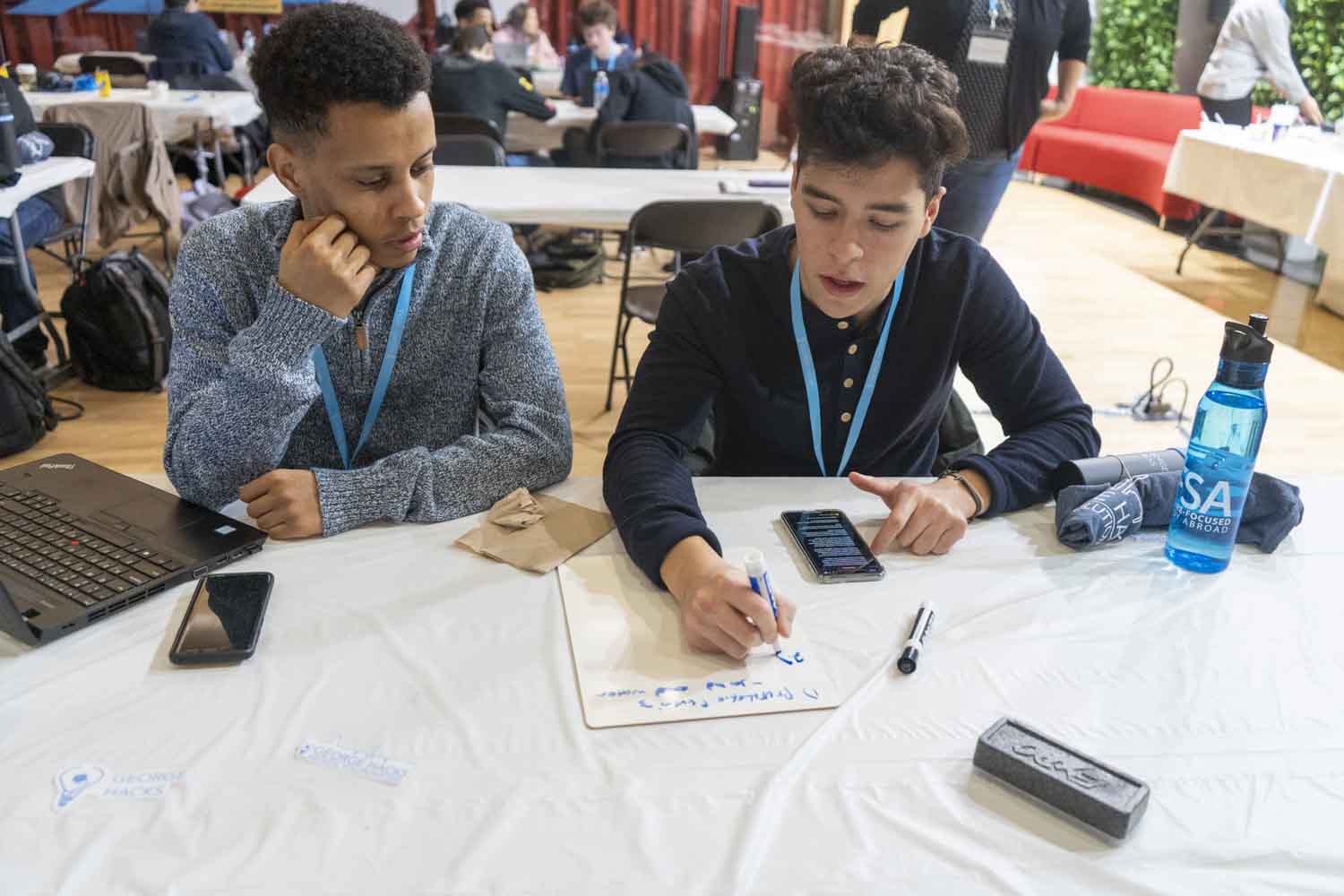Every year, the NCAA identifies the top 64 men’s basketball teams for the current season to go head-to-head for the title of the national champion. Individuals from across the country also participate in March Madness each year, trying to select a “perfect bracket” and win Warren Buffet’s $1 billion prize. With 63 total games and 2 possible outcomes of each game, there is a total of 9,223,372,036,854,775,808 possible brackets. Can you create the perfect one?
Even with knowledge of the teams and leveraging rankings, selecting a perfect bracket is still considered an impossible challenge. Adjunct professor in the Departments of Computer Science and Engineering Management and Systems Engineering and Technical Director of Data at IT Concepts, Inc. (ITC), Joel Klein, organized the AI/ML Bracket Challenge where GW Engineering students utilized artificial intelligence (AI) and machine learning (ML) to try and pick better brackets. The challenge was cosponsored by ITC and the Computer Science Department.
“My wife, Alex Klein, and I are both proud GW alumni. During undergrad, Alex was a member of the GW pep band, so we’ve always had ties to college basketball and March Madness. Since I’m not as passionate as Alex about college basketball, I started using my background in AI/ML to stay competitive in our yearly bracket,” said Klein. “Over the years, I’ve expanded beyond personal competitions, taking the AI/ML challenges to the office – with this year featuring IT Concepts inaugural sponsorship of the GW AI/ML March Madness Challenge.”
ML can aid individuals in selecting better brackets because it can process large volumes of data, create complex representations of teams and coaches, quantify play styles, and much more. Generally, there are two different ML approaches to identifying a winning team: classification, which is identifying which team we think will win, and regression, which is identifying how many points the given team will win by. Participants of the AI/ML Bracket Challenge worked with ITC staff on March 7, 2024, to begin developing their approach using 2023 datasets.
On March 19, students reconvened at the challenge’s hackathon to finalize their models and verify their submission was valid and meets requirements. By inputting data into their ML model they can generate predictions and use it to design their perfect bracket. To complete their submission in the challenge, students input their brackets into an ESPN bracket group. Prizes will be awarded to the top three brackets in the ESPN bracket group.
“IT Concepts is excited to sponsor this challenge because it provides students with an opportunity to gain hands-on experience working with real-world data to develop and test AI/ML models. Sports analytics is such an exciting and challenging area for AI/ML due to the large amounts of data and the general chaos found on the court (or field, rink, etc.). To assist and ensure this experience was not only fun but engaging, professional Data Scientists from IT Concepts, who work with our federal customers, were also onsite to support the challenge’s Hackathon,” Klein said. “If you want to see the results in real-time and join the madness, check out the student’s brackets on the challenge’s ESPN bracket group!”


